Teaching opportunities for South African musicians
Being a musician means acquiring knowledge of musical theory and practical musical skills over the years. Teaching presents an opportunity to share this expertise with a new generation of musicians, while at the same time finding a way to create a revenue stream that lies outside the volatile music industry.
This article presents an overview of mainstream teaching and tutoring opportunities for South African musicians.
Teaching at South African schools
Music education in South Africa has seen tremendous development since the advent of democracy, as the government has sought to remove its ‘elitist’ reputation and integrate the discipline into the core curriculum in schools across the country.[1]
In South African schools, music education is mandated by the Department of Basic Education under the compulsory learning area of Arts and Culture. The curriculum starts in Grade R (pre-school) and continues through to Grade 9. The Department further stipulates that the Arts and Culture curriculum must be equally divided into the four art forms: Dance, Drama, Music and Visual Art.[2] Therefore, music teachers fulfil a crucial role in the education landscape – even though, from Grades 10 to 12, the number of music students tends to reduce drastically.[3]
Historically, in terms of qualifications, music teachers would require appropriate music-related qualifications (e.g. BMus), or else sufficient music teaching experience. However, a specific degree or diploma in the teaching of music is often stipulated – or at least preferred – by schools.
A postgraduate certificate in education (PGCE) is a popular choice for university graduates looking to get into teaching, though this degree will provide more training than is strictly necessary for those looking only to teach music. In these cases, a diploma in music (DipMus) will be sufficient, as it provides an NQF Level 6 certification (see more below).
- Many South African universities offer PGCE programmes. For a helpful list, including application procedures, please see here.
- For those looking to obtain a DipMus, options include NMMU, UFS and NWU.
The concern around qualifications has been intensified by the South African Council of Educators (SACE) recently changing its requirements.[4] While, in the past, the council has been willing to accept provisional registration, as of July 2018, permanent registration is required. As teachers throughout South Africa are required to register with SACE, this means that musicians who wish to pursue this avenue seriously will need to obtain the qualifications discussed above.
- SACE registration is done via the e-Government Portal.
- The registration fee is R200, and you can read the updated registration guidelines here.
For job listings and opportunities, music teachers should register with the Department of Basic Education’s Qualified Educators Recruitment Database, and to regularly check the Vacancies page on the Independent Schools Association of South Africa (ISASA) website. Some teaching positions are also listed in online job marketplaces such as BizCommunity, Indeed, Career Junction, MNC Jobs, LinkedIn, etc.
Finally, it is highly recommended that South African music teachers register with the South African Society of Music Teachers (SASMT). This organisation, the “oldest professional music society in South Africa”, offers a number of benefits to its members, and provides potential employers with the ‘find-a-teacher system’ to aid their search for a suitable candidate.[5]
Video: In this video, Dr Arisa Voges from the Hugo Lambrechts Music Centre discusses the benefits of music education.
Tertiary opportunities
Thanks to the large number of performing arts colleges in the country, there are many opportunities in the tertiary education sector for South African musicians. Institutions such as AFDA, COPASA, ASE and Boston City Campus offer degrees, diplomas and certificates in all aspects of music, from composition to performance, production and even music rights management.
- In this sector, relevant qualifications that speak to your competence as an industry professional are desired.
- Previous teaching experience is desirable, while personal networks and recommendations can also be instrumental in finding work in this sector.[6]
- As these are generally private, commercial institutions, jobs tend to be advertised on the company’s individual websites, and through mainstream channels such as BizCommunity, Indeed, Career Junction, MNC Jobs, LinkedIn, etc.
Teaching in a university setting, on the other hand, is recommended for musicians with an academic slant, as the demands of this job extend beyond training and into the realms of formal academic research. Teaching in a university setting will also be recommended for musicians who have strong links to the formal music education sector, as jobs in music departments are often found through alumni networks and personal recommendations.[7]
Those entering into university-level music education, however, will find a dynamic, shifting space where, according to Neil Gonsalves, director of the Centre for Jazz and Popular Music at the University of KwaZulu-Natal (UKZN), all aspects of the curriculum are being impacted by the fast-changing pace of technology. “Everything is up in the air these days about what we should be teaching and how we should be teaching it. It is all in a constant state of flux,” he says.[8]
- As university music departments tend to be small, competition for jobs in this sector can be fierce. Candidates will generally be judged on the quality and depth of their academic and musical qualifications.
- Jobs of this nature are usually advertised through official university channels, or on the Careers page of the Department of Higher Education and Training’s website. Check the websites of music departments around the country for news about job openings: UKZN, University of Cape Town, Wits University, University of Pretoria, North West University, Rhodes University, University of the Free State, Stellenbosch University, etc.
Tutoring opportunities
Music tutoring – usually in the form of teaching a specific musical instrument to students of all ages/skill levels – is an established and popular ‘side hustle’ for South African musicians. According to the South African Society of Music Teachers, the minimum fee that should be charged for this service is R340/hour (for individual lessons), or R150/student (for group lessons).[9]
South African musicians looking to earn an income from music tutoring can try a variety of channels:[10]
- Schools. Even if you are an independent tutor, it is a good idea to approach schools to see if they would be interested in the services of a music tutor. Not only can schools provide classroom (or rehearsal room) space for your lessons, they will advertise your services to the student body on your behalf.
- Self-marketing. Musicians who would prefer to tutor adult students will find that self-marketing is the most effective method of finding new clients. This can be achieved via targeted social media adverts, or by distributing flyers at instrument shops, music venues, etc. This can be particularly effective if you are able to offer lessons in a rare instrument (e.g. banjo, bouzouki) or in a specialised genre (e.g. maskandi, bluegrass).
- Online tutoring. With the COVID-19 pandemic disrupting global education systems, online tutoring has proliferated both in South Africa and around the world.[11] Online tutors can help music students who have fallen behind due to a lack of classroom time, while – as more and more areas of social life move onto platforms such as Zoom – online tutoring can also be a convenient way for adult students to pick up a new pastime. Emerging platforms such as Master Music, Turtlejar and Brightsparkz function as marketplaces for students to connect with online tutors around the country.
Final thoughts
No one is born a musician; everyone learns how to make music, and even those who have been playing for many years are always looking to develop their skills and learn to play in new ways. Therefore, teaching and tutoring presents a reliable revenue stream opportunity for South African musicians.
As a final note to conclude with, teaching and tutoring, of course, doesn’t always occur in a formal setting or academic environment. For information about creating online courses and e-learning materials, or for more about opportunities in the development sector in South Africa, please consult our individual articles in the Revenue Streams for South African Musicians series. These avenues will allow you to supplement your income from teaching fees, which – according to the Revenue Streams for South African Music Creators 2022 report – equate to a monthly average of R5 990.
Resources and citations
- [1] Jacobs, GS. (2010). The Viability of Music as an Academic Subject at Secondary School Level. University of South Africa. Accessed on 6 February, 2022: https://uir.unisa.ac.za/bitstream/handle/10500/3696/dissertation_jacobs_g.pdf
- [2] Jansen van Vuuren, E. (2011). Subject Music in rural South African schools : challenges and solutions within a comparative context. University of Pretoria. Accessed on February 6, 2022: https://repository.up.ac.za/bitstream/handle/2263/29012/01chapters1-2.pdf?sequence=2&isAllowed=y
- [3] Hellberg, EP. (2014). A Critical Review of South Africa’s Curriculum and Assessment Policy Statement: Grades 10-12 Music. University of the Free State. Accessed on February 6, 2022: https://www.sace.org.za/assets/documents/uploads/sace_82162-2021-03-31-Registration%20Requirements%20%202019%20(latest%20version).pdf
- [4] South African Council of Educators (SACE). (2021). “Registration Requirements”. Accessed on February 6, 2022: https://www.sace.org.za/assets/documents/uploads/sace_83229-2021-08-19-Registration%20Requirements%20%20Revised%202021.pdf
- [5] South African Society of Music Teachers. (2009). “Who We Are”. Accessed on February 6, 2022: http://www.sasmt-savmo.org.za/society/policies.php
- [6] Barile, N. (2017). “Networking for Teachers: 7 People and Places to Turn To”. Western Governors University. Accessed on February 6, 2022: https://www.wgu.edu/heyteach/article/networking-for-teachers-7-people-and-places-to-turn-to1711.html
- [7] Original interview for Music In Africa with Neil Gonsalves, Director of the Centre for Jazz and Popular Music at University of KwaZulu-Natal: January 15, 2022.
- [8] Ibid.
- [9] South African Society of Music Teachers. (2019). “Fees”. Accessed on February 6, 2022: http://www.sasmt-savmo.org.za/society/fees.php
- [10] Barile, N. (2017). Ibid.
- [11] Li, C. & Lalani, F. (2020). “The COVID-19 pandemic has changed education forever. This is how”. World Economic Forum. Accessed on February 6, 2022: https://www.weforum.org/agenda/2020/04/coronavirus-education-global-covid19-online-digital-learning/
This article is part of the Revenue Streams for African Musicians project, supported by UNESCO’s International Fund for Cultural Diversity in the framework of the UNESCO 2005 Convention on the Protection and Promotion of the Diversity of Cultural Expressions, the Siemens Cents4Sense programme, Siemens Stiftung, Goethe-Institut, the National Arts Council of South Africa and Kaya FM.
Editing by Kalin Pashaliev






















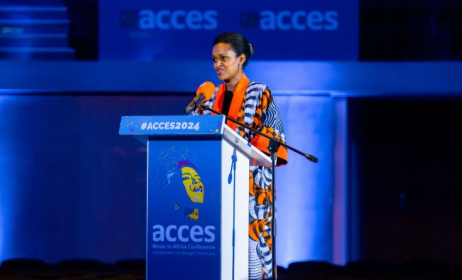
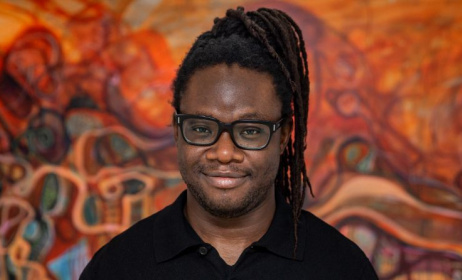


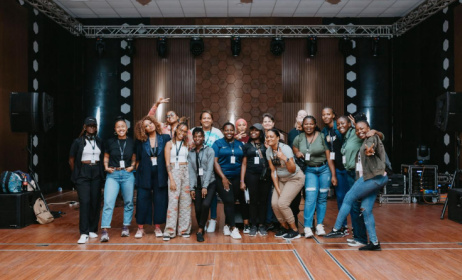
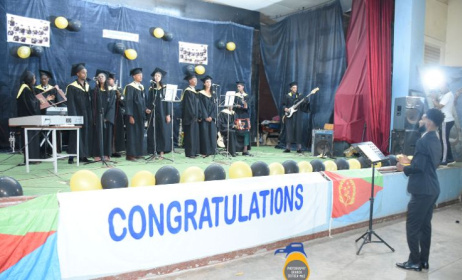


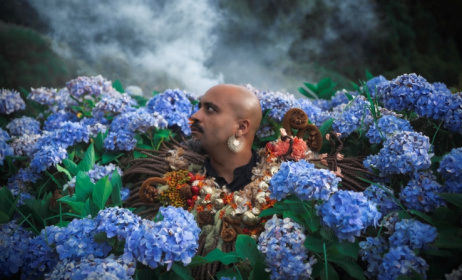
Comments
Log in or register to post comments